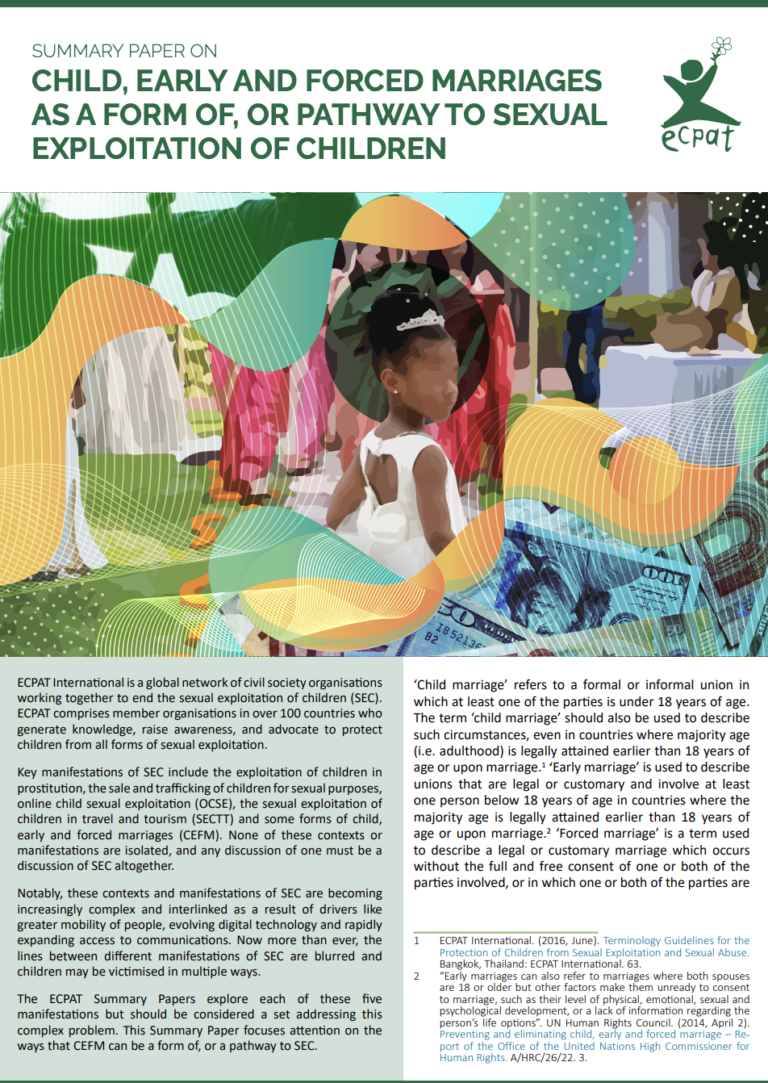ECPAT International is a global network of civil society organisations working together to end the sexual exploitation of children (SEC). ECPAT comprises member organisations in over 100 countries who generate knowledge, raise awareness, and advocate to protect children from all forms of sexual exploitation. Key manifestations of SEC include the exploitation of children in prostitution, the sale and trafficking of children for sexual purposes, online child sexual exploitation (OCSE), the sexual exploitation of children in travel and tourism (SECTT) and some forms of child, early and forced marriages (CEFM). None of these contexts or manifestations are isolated, and any discussion of one must be a discussion of SEC altogether. Notably, these contexts and manifestations of SEC are becoming increasingly complex and interlinked as a result of drivers like greater mobility of people, evolving digital technology and rapidly expanding access to communications. Now more than ever, the lines between different manifestations of SEC are blurred and children may be victimised in multiple ways.
The ECPAT Summary Papers explore each of these five manifestations but should be considered a set addressing this complex problem. This Summary Paper focuses attention on the ways that CEFM can be a form of, or a pathway to SEC.

